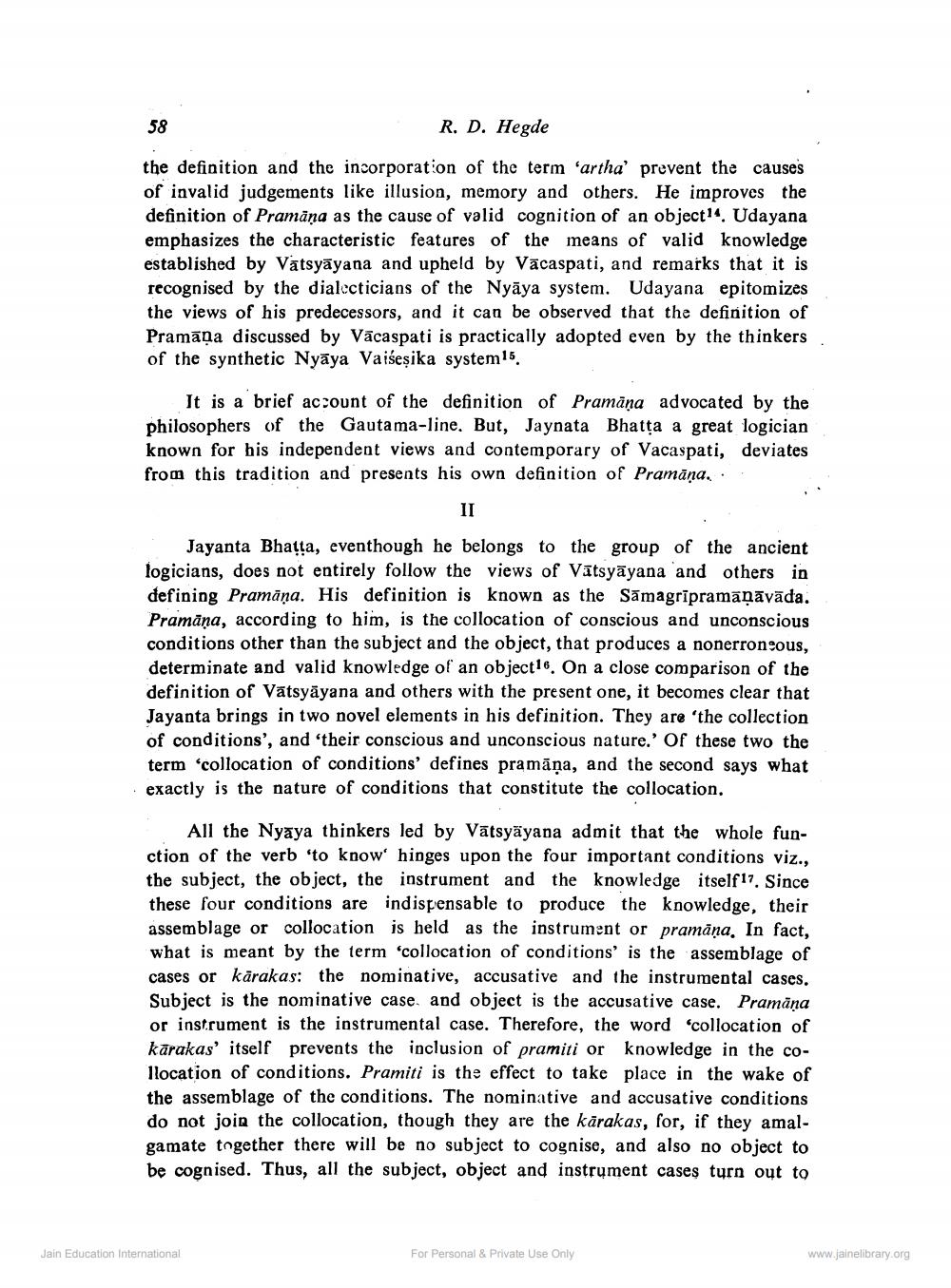________________
58
R. D. Hegde
the definition and the incorporation of the term 'artha' prevent the causes of invalid judgements like illusion, memory and others. He improves the definition of Pramāņa as the cause of valid cognition of an object14. Udayana emphasizes the characteristic features of the means of valid knowledge established by Vatsyāyana and upheld by Vācaspati, and remarks that it is recognised by the dialecticians of the Nyāya system. Udayana epitomizes the views of his predecessors, and it can be observed that the definition of Pramāņa discussed by Vācaspati is practically adopted even by the thinkers of the synthetic Nyāya Vaiseșika system'.
It is a brief account of the definition of Pramāņa advocated by the philosophers of the Gautama-line. But, Jaynata Bhatta a great logician known for his independent views and contemporary of Vacaspati, deviates from this tradition and presents his own definition of Pramāņa.
II
Jayanta Bhatta, eventhough he belongs to the group of the ancient logicians, does not entirely follow the views of Vātsyāyana and others in defining Pramāņa. His definition is known as the Sāmagrīpramāṇāvāda. Pramāņa, according to him, is the collocation of conscious and unconscious conditions other than the subject and the object, that produces a nonerroneous, determinate and valid knowledge of an object16. On a close comparison of the definition of Vātsyāyana and others with the present one, it becomes clear that Jayanta brings in two novel elements in his definition. They are 'the collection of conditions', and 'their conscious and unconscious nature.' of these two the term 'collocation of conditions' defines pramāņa, and the second says what exactly is the nature of conditions that constitute the collocation.
All the Nyaya thinkers led by Vātsyäyana admit that the whole function of the verb 'to know' hinges upon the four important conditions viz., the subject, the object, the instrument and the knowledge itself 17. Since these four conditions are indispensable to produce the knowledge, their assemblage or collocation is held as the instrument or pramāņa. In fact, what is meant by the term 'collocation of conditions' is the assemblage of cases or kārakas: the nominative, accusative and the instrumental cases. Subject is the nominative case and object is the accusative case. Pramāna or instrument is the instrumental case. Therefore, the word 'collocation of kārakas' itself prevents the inclusion of pramiti or knowledge in the collocation of conditions. Pramiti is the effect to take place in the wake of the assemblage of the conditions. The nominative and accusative conditions do not join the collocation, though they are the kārakas, for, if they amalgamate together there will be no subject to cognise, and also no object to be cognised. Thus, all the subject, object and instrument cases turn out to
Jain Education International
For Personal & Private Use Only
www.jainelibrary.org




